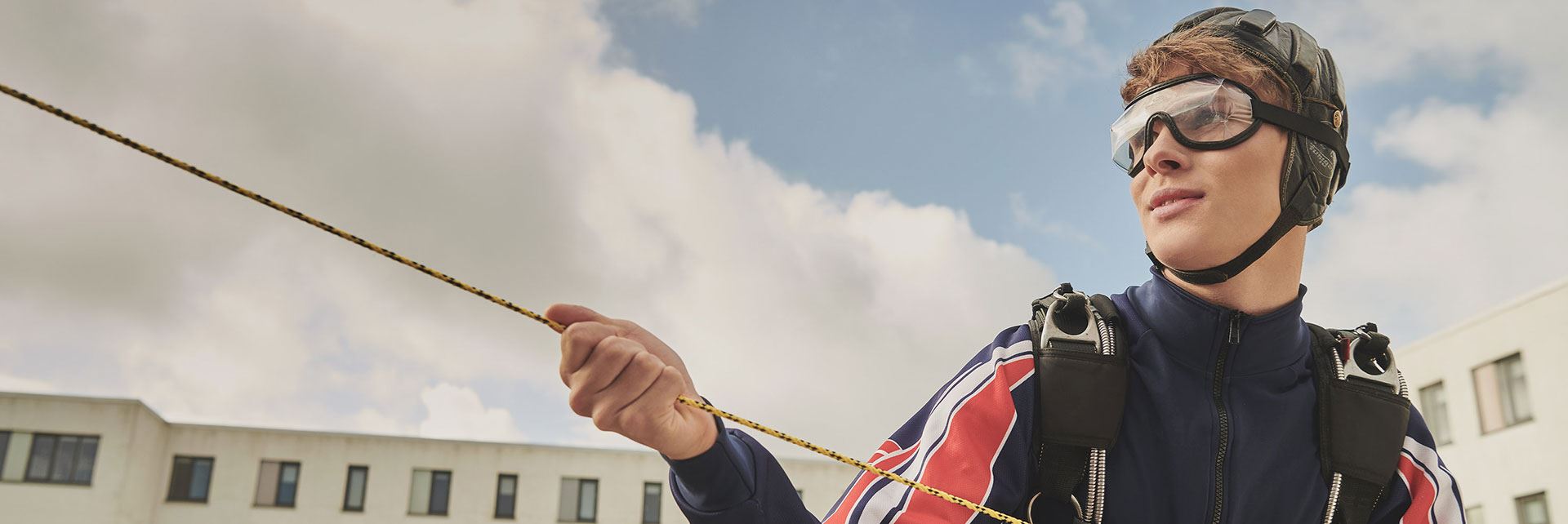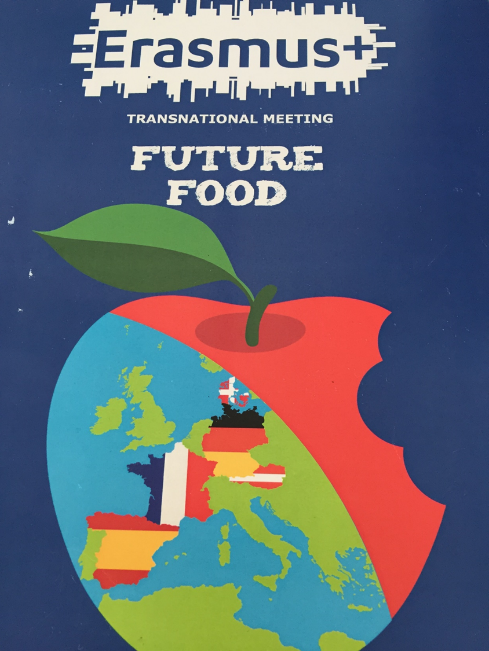The process with the FUTURE FOOD-project
Five students from the Biotechnology programme, htxy17, participated in a workshop in Mainz, Germany.
Topics in the workshop
- Past – Present (history, marketing and social studies, Germany)
- Evolution of diets over the last decades/centuries. (meat, vegan, vegetarian etc.)
- The impact/influence of immigration on our countries’ food traditions in The EU
- Interviewing people from different age groups to report on the evolution of food diets
- European Cultural Heritage Year activity: Europe on a Plate
A European partnership between high schools from Germany, Austria, France, Spain, and Denmark
As a part of the Erasmus “Future Food 2021”-project, students from our study programme Biotechnology visited Berufsbildende Schule in Mainz, Germany in December 2018. The purpose of the visit was to focus on food trends and communication about “Future Food”.
Quotes from the students about the trip:
- We got to experience a normal day for our German hosts both at the high school and in the city of Mainz.
Besides visiting the German high school, we also got a guided tour of the Südzucker sugar factory. We saw most of the production like how trucks deliver the sugar beets to the factory, how the sugar beets are treated during production, and how they eventually turn into the finest sugar.
We also visited the chemistry giant, BASF, where we started with an outdoor tour before we saw their big visitor centre. We experienced some of the many interesting things BASF is a part of. There were small experiments and a lot of information about the company – about how it all started and how BASF became the big, influential company it is today.
We got to go into the canteen kitchen at Gutenberg University and see how the different kitchens work.
Every visit became more interesting because we were told a lot about the different places. We could also ask the people who work there how they work and what goes on in company.
Other than the formal visits, the students got a fun, challenging experience at an indoor climbing park and visited different restaurants. A big part of the study tour was the social aspect as the student stayed with host families where they were able to experience how it is to be a German high school student up close.
Our students gained a great understanding of how it is to be a high school student in one of the other participating European countries through plenty of talks and fun times with the host families.
It turns out that being a high school in another European country is not that different from being a Danish high school student although there are some areas where there are some significant differences.
7 – 13 April 2019 in Aalborg, Denmark
Aalborg Tekniske Gymnasium hosted the workshop. 24 students from foreign high schools participated and lived with host families during their stay. In addition, two teachers were job shadowing.
Topics in the workshop:
- Food and Body (biology, chemistry, mathematics, and biotechnology, Denmark)
- Industrial food / how does the body react to ... /
- Body needs (proteins)
- Food additives / allergens
- Specific diets (athletes, sports, future food, space exploration)
- Brain food (nuts etc.)
- Energy drinks
- Food trends, how does it affect the body (vegetarianism / veganism / flexitarianism)
22 - 28 September 2019 in France, htxy18
Five students and two teachers from our Biotechnology programme, htxy18, participated in the workshop in France.
Topics in the workshop:
- Friends or Foe? Good or evil? (Environment, chemistry, science technology, France)
- Pesticides / industrial farming / conventional farming vs organic farming
- How have science and tech influenced modern farming techniques?
- How can science and technology contribute to more sustainable farming?
- GM food
- Intensive farming: when and why? / impact on environment
- Hunting (food supplies)
- Urban farming / self-sufficiency
29 March – 4 April 2020 Spain (planned with htxy18, 5 students + 2 teachers)
Topics in the workshop:
- Food and Society (Social science and history, Spain)
- Post war feeding: Wit and suffering
- Food, a way to show your ethnicity
- Democracy and economic development: A change in the food behaviours
- Mediterranean diet. A diet increasingly into disuse. Why?
- Healthy alternative diets in western societies.
- Food for the physical activity. Recipes to eat before and after physical activities.
Planned for the school year 20/21 with htxy19
November 2020 in Austria
Topics in the workshop:
- Public health / social issues (Social science, communication and technology, Austria)
- Public health policies (slogans, advertising, campaigns etc.)
- Health insurance
- Social supermarkets / Supermarket surplus and charities. Visits / discussions / workshops
- Food resources, food disposal and food waste (in and outside schools)
March - April 2021 in Denmark
Topics in the workshop:
- Future food and innovation (reason and knowledge, biology, chemistry, mathematics and biotechnology, Denmark)
- What will we be eating in 20 years time?
- Sonic-enhanced food?
- Lab-grown meat
- Insects, seaweed and algae
- Preparing Future Food
Erasmus+ KA1 (Student mobility)
Barcelona
The students from our study programme Urban Design travel to Barcelona, where they are in an internship in different start-ups and get to experience the Spanish city for three to four weeks.
Our student fly to Spain with some of our teachers and are picked up by the teachers again at the end of their stay. During the few weeks in Barcelona, the students are on their own.
The purpose of the internship in Barcelona is for the students to learn how to take care of themselves and understand the culture they are in. The city of Barcelona is attractive for them because of the fine architecture and entrepreneurship.
When the internship is over and the students are back in high school again, they continue to work with entrepreneurship and use their internship company in Barcelona as a case.
The stay in Barcelona is financed with funds from Erasmus+.
Watch highlights from the 2019-tour:
London
During the second year, students from our study programme Emergency Line travel to London for three weeks where they will be interns at different companies five days a week.
Before they travel, the students have made a list of the companies they would like to work in. Then we try to match the wishes of our students with companies in London. The students are accommodated by host families while they are in London.
In the fall of 2019, our students Kasper Würtz and Sofie Søgaard went to London. They got internships at a private football club and a city farm.
“You learn about a whole new culture and get better at communicating,” says Sofie Søgaard. She points out that it is up to the student to choose how involved you want to get with the English language.
Kasper Würtz is considering becoming a police officer and his internship gave him some food for thought.
“People are different and it is definitely something that is good to know in subject like that”, he says.
The stay in London is financed with funds from Erasmus+.
Other current projects:
Erasmus+ KA1 (Teacher exchange)
Nordplus (Nordic Minister Council)


